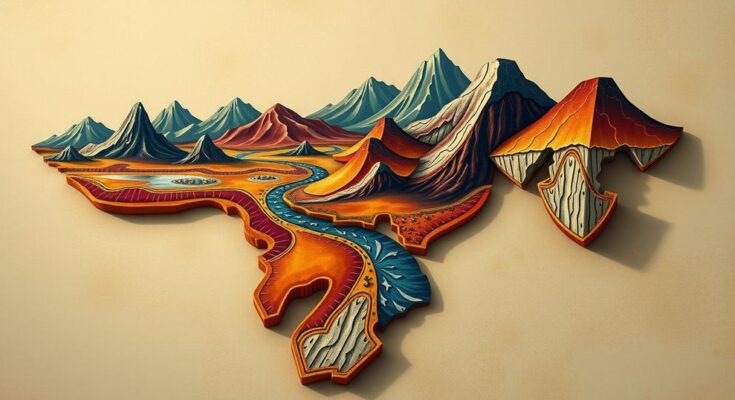The DRC crisis has intensified as M23 rebels seize territories, prompting military involvement from Rwanda, Burundi, and Uganda. Congolese President Tshisekedi accuses Rwanda of supporting the rebels, while Rwanda maintains its actions are defensive. The situation presents risks of wider regional conflict as neighboring countries vie for influence over rich mineral resources in eastern DRC.
The conflict in the Democratic Republic of Congo (DRC) has escalated as M23 rebels capture significant territories in the mineral-rich eastern region, resulting in a severe humanitarian and diplomatic crisis that has drawn in multiple neighboring nations. Out of concern for regional instability, several African countries have deployed troops to the area, highlighting the ongoing pattern of external interventions in DRC’s affairs.
At the center of this turmoil is Congolese President Félix Tshisekedi, who seeks to reclaim territory lost to the rebels and prevent further incursions. He accuses Rwandan President Paul Kagame of providing military support to the M23 and seeks international intervention amid rising opposition that threatens his political stability. Despite evidence purportedly linking Rwanda to the conflict, international responses have largely been rhetorical.
Rwanda, led by Kagame, approaches the conflict with a focus on self-defense, asserting that its military actions are aimed at dismantling armed groups that threaten Rwanda. Kagame demands recognition of his narrative: that the situation constitutes a purely Congolese issue from which Rwanda seeks to protect its borders. Economic interests play a significant role, as access to DRC’s minerals remains a longstanding driver of conflict in the region.
Burundi’s involvement adds complexity to the situation, as its army operates in eastern DRC, ostensibly to combat Burundian rebel factions while simultaneously supporting Kinshasa against M23. Tensions exist between Burundi and Rwanda over fears of territorial encroachment. Burundi seeks to prevent Rwandan influence from destabilizing its government and is wary of the escalating conflict impacting its own security.
Uganda’s position is similarly ambivalent; while it offers assistance against domestic militants to the DRC government, it is also accused of backing the M23. Local reports indicate an increased military presence in the area, causing concerns about a broader conflict. Uganda aims to protect its interests in eastern DRC without allowing Rwanda to dominate the situation.
South Africa contributes substantially to a regional force aiding the Congolese military, but it faces a diplomatic clash with Rwanda. Tensions heightened following accusations surrounding the deaths of South African soldiers, provoking a sharp exchange between the two nations. Disagreements illustrate the division between regional alliances, as East African countries back Rwanda while Southern African nations support DRC’s sovereignty.
The crisis in the DRC is rooted in the complex historical interactions between regional powers and the fragile state of its government. The emergence of armed groups such as M23 prompts neighboring countries to intervene, often under the guise of protecting national interests or securing borders. This pattern has led to a multitude of wars involving various African nations over mineral resources, highlighting the intertwined fates of these neighboring countries.
The situation in the Democratic Republic of Congo continues to be influenced by multiple regional players with competing interests. The roles of Rwanda, Burundi, Uganda, and South Africa exemplify the connections between local conflict dynamics and broader geopolitical rivalries. As the M23 rebels persist in their campaign, the potential for wider regional conflict looms, necessitating urgent dialogue to restore stability in the region.
Original Source: www.bbc.com




